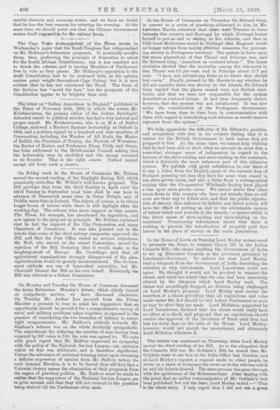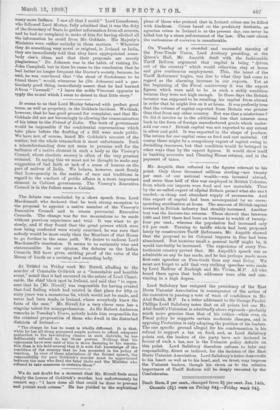The debate wee continued on. Thursday, when Lord Morley moved
the third reading of his Bill. As to the allegation that the Councils Bill was Mr. Gokhale's Bill, he stated that Mr. Gokhale came to see him at the India Office last October, and at Lord Morley's request, a request made to other people, he wrote on a sheet of notepaper his views as to the reforms which he and his friends desired. The same process was gone through with the spokesman of the Mohan:module. After dealing with the point that an earlier communication of Mr. Gokhale's had been published, but not the later, Lord Morley ended :—" That Is the whole story. I only regret that I did not see a great many more Indians. I saw all that I could." Lord Lansdowne, who followed Lord Morley, fully admitted that it was the duty of the Secretary of State to gather information from all sources, and he had no complaint to make of him for having elicited all the information he could from Mr. Gokhale. His Majesty's Ministers were rather unlucky in these matters. "Wherever they do something very novel or original, in Ireland or India, they are immediately told that they have appropriated some- body else's ideas, and that their proposals are merely Plagiarisms." Dr. Johnson was in the habit of visiting Dr. John Campbell, but in time he came to the conclusion that he had better no longer frequent the Doctor's society, because, he said, he was convinced that "the shoal of Scotehmen to be fdund there" would, whenever he (Dr. Johnson) said a par- ticularly good thing, immediately assert that he had learned it from " Cawmell." "I leave the noble Viscount opposite to apply the moral which I seem to detect in that little story."







































 Previous page
Previous page